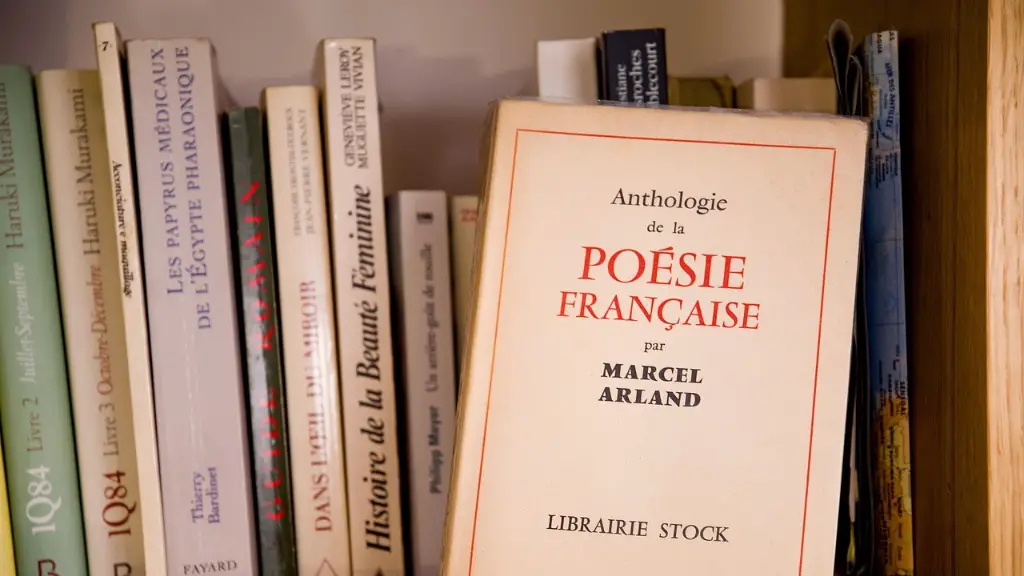Maya Angelou, an acclaimed poet and author, wrote the poem “Still I Rise” in 1978 as part of her third volume of poetry, “And Still I Rise”. Angelou had endured many experiences of adversity and oppression and was able to channel her experiences into her writing. In the poem, “Still I Rise”, she expresses a sentiment of resilience in the face of oppression and serves as an anthem of strength in the face of adversity.
The title of the poem has a double significance as “I Still Rise” can be interpreted as an affirmation of resilience in the face of difficulty as well as an encouragement to her readers to hold on despite whatever troubles they may be facing. This sentiment is even echoed in the poem’s opening line, “Out of the huts of history’s shame / I rise”. By indicating that she is rising out of the huts of history’s shame, Angelou implies that she does not allow her hardships to define her.
“Still I Rise” is an optimistic poem written from the viewpoint of a survivor of oppression and prejudice. The poem expresses a desire to stand proud and to refuse to be subjugated by anyone or anything. This is embodied in the lines “You may shoot me with your words, / You may cut me with your eyes,” wherein the narrator conveys her strength in the face of criticism. The narrator demonstrates her self-confidence and her capacity to handle any situation that comes her way.
The poem also serves as an inspiration to others who have faced oppression and pain. With her words of empowerment, Angelou asks her readers to stand tall, to not be afraid, and to have faith that they have the strength to overcome their hardship and move towards a better future. She writes “So, does my sassiness upset you? / Why are you beset with gloom?”, imploring her readers to embrace her assertive tone and find strength within her words.
Moreover, “Still I Rise” also serves to highlight the need for individuals to unify and join forces in order to create a better society where oppression and prejudice are abolished. Initially published during the civil rights movement, the poem serves as a call to arms for those struggling for equality and justice in America. With the words “I shall rise,” Angelou expresses that individuals must come together to create a more equitable society.
History of Maya Angelou
Maya Angelou was born Marguerite Ann Johnson in St. Louis, Missouri, in 1928. She was raised mostly by her grandmother and her mother in the tiny town of Stamps, Arkansas. She was a shy and introverted child, but was encouraged by her family to express herself through the art of dance, music and the spoken word. As a young girl, she considered a career in dance, music, and writing. At the age of sixteen, she moved to San Francisco and enrolled in dance school.
During this time, she wrote her first book, an autobiography entitled ‘The Heart of a Woman’. In it, Angelou recounted her experiences in school and the racial discrimination she encountered in her early life. This launched her into the world of literature, and she went on to write numerous autobiographies, novels, plays and poetry.
In her writing, Angelou sought to explore issues of racial injustice and inequality, most poignantly in her poetry. Her most acclaimed poem was “Still I Rise”, a powerful ode to resilience and self-worth, which has become an anthem for the oppressed. Through her writing, Angelou conveys her determination to overcome adversity and her refusal to be silenced by prejudice or racism.
Realizations Post Writing
With the poem “Still I Rise”, Angelou conveys a sentiment of resilience in the face of oppression. Through her writing, she was able to express her determination to overcome adversity and her refusal to be silenced. The poem serves as an anthem of strength to those who have been oppressed and its powerful words of encouragement continue to inspire those fighting for equality and justice.
In the decades since the poem was published, Angelou has been celebrated as an icon of empowerment and hope. Her determination to make her voice heard has been an inspiration to generations. Through her writing and activism, she has broken glass ceilings and redefined the idea of what it means to be a confident and empowered woman.
Angelou’s work continues to be celebrated, including her poem “Still I Rise”. The poem serves as a reminder that despite the hardship and oppression we may face, we must never give up. We must hold on and keep striving for a brighter future. That is the powerful message Angelou was able to express in her poem, “Still I Rise”.
Influence of the Poem
The words of “Still I Rise” have become iconic and the poem has been adopted by many as an anthem of resilience, hope, and strength in the face of adversity. It has been used to empower and embolden people in their fight for justice and equality. It has been cited by many activists and politicians and has been used during marches and demonstrations around the world.
In addition, the poem has been the subject of several songs, plays and books. It has been performed by acclaimed artists such as Andra Day and Alicia Keys, and has been featured in popular films such as “Selma” and “The Hate U Give”. It has been an inspiration to writers such as Nikki Giovanni, Toni Morrison, and Alice Walker.
The poem ‘Still I Rise’ has become an integral part of the legacy of Maya Angelou. It is her most renowned poem and serves as an inspiration to those struggling for a just world. It has been a source of comfort and strength for many who have faced discrimination and oppression.
Depiction of Social Issues
The words of “Still I Rise” were powerful for their time and continue to resonate today, as many of the issues Angelou explored in the poem remain relevant. The poem speaks to a wide range of issues from sexism, racism and religious intolerance, to poverty and oppression. In the poem, Angelou challenges her readers to confront their circumstances, to reject constraints and focus on personal progress.
Angelou wrote “Still I Rise” as a response to real issues of injustice, inequality and oppression. Her words serve to remind us that we must remain aware of the struggles of others, and do our part to ensure that all people are treated fairly and without prejudice.
In quoting James Baldwin, Angelou writes “There is no time for despair, no place for self-pity”. This line is especially poignant today, as many people are facing difficult times and finding themselves trapped in a cycle of poverty and injustice. The poem suggests that we must not give up, but instead hold on to hope and keep striving for a better future.
Political and Social Implications
“Still I Rise” is a poem that resonates with many, particularly those in the African-American community in the United States. Angelou’s defiance of oppression and resilience in the face of hardship speaks to the struggles of African-Americans throughout history. The poem has been a source of hope and strength for many, and has been used to propel the civil rights movement forward in the United States.
The poem has also been used in many international political contexts. From the Middle East to South America, the poem has been embraced by those fighting for justice and democracy around the world. In these contexts, it serves as a powerful reminder that we must unify and join forces in order to create a better society.
The poem inspired a film of the same name, which chronicles Angelou’s journey from childhood to adulthood, and features several actors performing readings of the poem. This film serves as a powerful reminder of Angelou’s impact and will continue to inspire people for generations to come.
Angelou’s poem “Still I Rise” had a powerful impact on its publication in 1978 and continues to be relevant today. With its affirming words of resilience and strength, the poem has become an anthem of hope and empowerment to those who endure oppression and prejudice.





